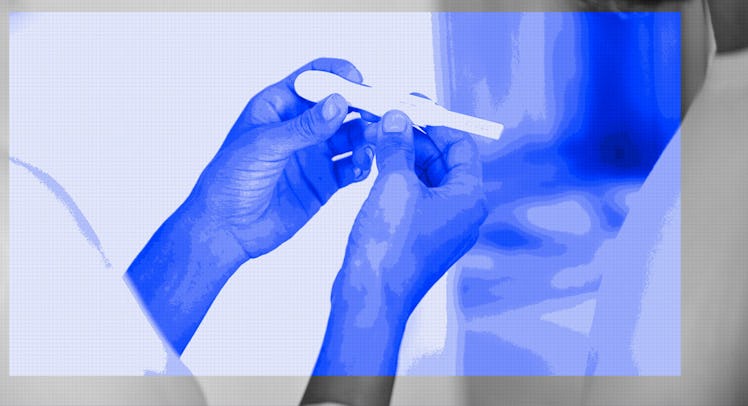5 Facts About Ovulation Every Man Should Know
Maybe you slept through that section of high school sex-ed. Not to worry, here’s your crash course.

Sure, you’ve got the basics down cold. But when it comes to the subtleties of your partner’s monthly cycle, we’re going to guess you’re no expert. When does a woman ovulate? How long does a woman ovulate? Why does a woman ovulate? Two of those are entirely reasonable questions. And understanding the answers is absolutely key if you’re trying to get pregnant, which is often a great deal more difficult than people expect.
Here’s what you need to know.
Fact 1: Women Can Ovulate Without Getting Their Period
There is a big misconception among both men and women, says Carolyn Givens, M.D., a reproductive endocrinologist and fertility expert at the Pacific Fertility Center in San Francisco, that menstruation uniquely indicates when ovulation occurs. “While it’s true that if a woman gets her period regularly every month it indicates she is most likely ovulating, the absence of a period does not necessarily mean no ovulation,” says Dr. Givens. Due to very low body fat (in the case of marathoners or dancers), or medical issues such as hormonal dysfunction, even women who don’t menstruate can have random spontaneous ovulation. Ovulation is a sufficient condition, but not a necessary one.
Fact 2: Weight Affects Ovulation
“Women who are either very thin or overweight will have more trouble with ovulation than a woman of a healthy weight,” says Dr. Givens. In overweight women, the risk for polycystic ovarian syndrome — one of the most common causes of ovulation disruption and female infertility — increases, according to the American Congress of Obstetricians and Gynecologists (ACOG). In fact, 80 percent of women with PCOS are obese. If you and your partner are trying to conceive, one of the best things you can do is follow a healthy diet and make sure your weight and BMI are in normal ranges.
Fact 3: Most Women Ovulate 13 to 14 Days Before Their Next Period
While the commonly cited window is between days 11 to 21 of a woman’s cycle, the most likely time for ovulation is 13 to 14 days before the start of a period. The best strategy for couples trying to get pregnant is to use an ovulation app that tracks a woman’s menstrual cycle over the course of several months, looking for patterns and statistical likelihoods of the ovulation window. And remember, there is no time during a woman’s cycle where she absolutely can’t get pregnant, including during her period. Unlikely? Sure. “But I never say never,” says Dr. Givens.
Fact 4: Sex Before Ovulation Is Better Than Sex During It
Here’s the thing: Your sperm can survive for up to five days inside your partner’s body after you have sex, according to ACOG. Her egg, on the other hand, has a 24-hour window after it is released before it dies. So waiting for confirmation that your partner is ovulating significantly decreases the chances of sperm meeting egg in the necessary time window. Instead, use an OTC ovulation predictor kit, which measures the presence of luteinizing hormone, the hormone responsible for triggering ovulation, in your partner’s urine. Got LH? Get it on already! “We suggest having intercourse on the first day the test indicates, plus the following day,” says Dr. Givens.
There is a big difference in quality and sensitivity of these OTC kits, so ask your doc for a recommendation. “In our office, we use the Clearblue Easy Ovulation Kit,” says Dr. Givens.
Fact 5: Women Do Not Make a New Egg Every Month
Another popular misconception, ovulation does not equal egg-making. In fact, your partner was born with all the eggs she’ll ever have (don’t worry, that’s about two million). Those eggs slowly die off as she ages; by puberty, she has “only” 500,000 left. During ovulation, one of these pre-existing eggs matures to the point of being ready for fertilization, and is then released from the ovary and pushed through the fallopian tube in hopes of meeting its sperm counterpart. People make babies. Women don’t make eggs.
This article was originally published on